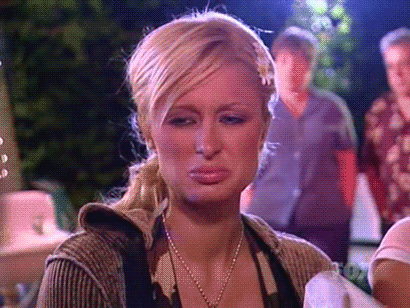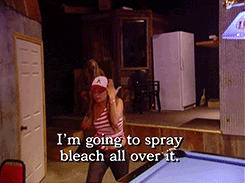April is Stress Awareness Month, so we’re dedicating the next few weeks to exploring our relationship with stress. Stay tuned and, as always, we’d love to hear from you! Comment below with your thoughts, experiences and questions on stress.
Picture this. You come home from work after a long day in the office. The tube was running late on your commute in. You spilled your coffee on your brand new top. Your co-worker spoke over you in a meeting. Your boss assigned you a task that totally messed up your to-do list. And you had to sit next to someone with bad breath on the bus home.
You walk in the door and give your partner a kiss. Then you see it. The recycling that you asked them to take out this morning. Still. There.
And that’s when you totally lose your sh*t.
Sound familiar?
In Transactional Analysis, a popular model of coaching psychology, this is called trading in your stamps.
What are ‘feelings’ stamps?
If you have a loyalty card for your local coffee shop, you collect stamps every time you buy a coffee. Once you’ve got a full card, you can cash it in for your reward (nothing tastes as sweet as a free flat white).
This is how ‘feelings’ stamps work in Transactional Analysis (TA). Rather than expressing them in the moment, we save up our feelings for however long—a day, a month, or even years—until we finally ‘cash’ them in (i.e. explode).
You can collect feelings stamps for different emotions, from sadness to anger, and in TA they’re referred to as ‘racket feelings’. Rackets are familiar responses to tricky situations or tough times, which we tend to learn in childhood and go on to form our behavioural patterns in adulthood.
The key thing to understand about racket feelings is that they are ‘inauthentic’ feelings. In other words, learned responses we use to mask our real feelings.
For example, if you were scolded as a child for crying or getting angry, you might learn to repress these emotions. In adulthood, you don’t tend to show much extreme emotion—maybe people even praise you for being calm and reasonable. Either consciously or unconsciously, your racket feelings become the norm.
What happens when you’ve collected a lot of stamps
The thing is, there’s only so long you can go collecting these racket feelings stamps and repressing your authentic emotions before they all spill out.
This can happen with stress. Going back to our earlier example, you might not have been able to authentically respond to stressful situations with the appropriate emotion (TA categorises our authentic emotions as sadness, anger, fear or happiness) throughout the day. So you put up that calm facade, and quietly collected your stress stamps.
Losing your sh*t about the recycling might seem like a disproportionate reaction, but that wasn’t the real reason you were mad—it was just the tip of the iceberg. What happened is you filled up your stress stamps card, then cashed them in.
How to avoid filling up your stamp card
Because racket feelings are such an ingrained part of our behaviour, changing how we collect and cash in our stamps isn’t going to happen overnight.
However, these five pointers can help you start to change your relationship with stress:
Reflect on your racket feelings and where they come from. These can be shaped by our primary caregivers, but they could also be societal e.g. “boys don’t cry” or people pleasing.
Notice when you tend to collect stamps. Identify when you feel those familiar, negative feelings and how you respond to stressful situations.
Remember that there are no bad feelings. It’s totally normal to feel happy, sad, angry or scared. It’s valid to express these emotions.
Learn about your nervous system and how to regulate it. Working with your parasympathetic nervous system in times of stress can help you connect more with your authentic feelings.
Keep on getting to know yourself. Understanding the different forces and voices (like your inner critic) that drive your actions and behaviour is a lifelong, but life-changing journey. You can do this through coaching or therapy, but if those options aren’t available to you, thankfully there are tonnes of free resources out there that can help you learn about psychology and self-development (like this newsletter!).
Remember, when we build a better relationship with ourselves, we build better relationships with each other (less blowups about the recycling). So if you think anyone in your life would benefit from F*ck Off Russell, why not share this newsletter with them?
We’ll be back next week with more insights and tips on dealing with stress.






